Dear friends,
This essay was originally published in Grain Magazine (Spring 2024). I wrote it in the Summer of 2023 when we were living in India for nine months. I speak a bit about my experience in a cult, Levin from Anne Karenina, the strange concept of “time-off”, and the beginning of my return to a sense of beautiful solitude.
I hope you enjoy it,
~S
K has a distaste for multitasking that I couldn’t quite grasp in the beginning. Someone in this house is not able to do anything without also doing another thing, he says. Someone being me. I am shortlisting writing contests to submit our poems for while Ted Lasso cracks some off-kilter American jokes to his British footballers. A cup of black coffee grows tepid by my knee. I have Bluest Nude by Ama Codjoe opened in another window. Time to time, I check for new emails and scroll through Instagram.
These last two acts are not intentional, really. Just something for my eyes and fingers to do while I wait for websites to load. He’s probably been watching me do this digital dance for a while before he lets out an animated sigh. I blink away from my screen and look at him. Do you know how to breathe, he asks, a soft smile playing on his lips to ease up any tension such a question might elicit. Despite the plethora of meditation apps (advertisements of which ironically keep popping up on my Instagram) and t-shirts urging us to keep calm and carry on, breathing — and doing just one thing — appears to be a lost art.
Now, I’m not an advocate of the “good old times” when social media didn’t exist and we couldn’t look up cats wearing tuxedos and smoking a cigar with a split-second Google search. I don’t think I even believe in the concept of “good old times”. Zadie Smith elucidates that the idea of the “good old times” for one set of people would, for her, mean not being able to vote, to study, or to marry the person she loves.
Time, like math, is dispassionate.
Which is not to say that it’s a calculating, cold entity out to poison the few good years we’ve got left, leaving us with nothing but tin scraps of memory we can cut our hands on trying to salvage. No, but it is forever dissolving and forming anew, simultaneously.
And the times we have now, replete as they are with doomscrolling and reaction videos, Youtube blogs and Snapchat filters, Tiktok wars and Meta-heads — are just as good or bad as any other. But it’s almost a logical, historical fact — scientifically verified at that — that our attention spans have shrivelled up.
And you have practiced meditation, K urges, for eight and a half years, right? He is right. Apparently. I did sit in a coven of chanters for two or so odd hours every morning between the ages of 17 and 24 mumbling mantra after mantra on a mala of 108 tulsi beads.
I’m supposed to be an expert at just doing one thing. Instead I’m playing the proverbial headless chicken trying to attach a hundred heads onto its manic body.
Perhaps I feel I’ve lost so many years to the cult, I suggest. He rolls his dark eyes (and I realize that I love kissing his almost-unibrow). See, even while thinking one thing I can’t just think one thing. That’s bullshit and you know it, he says, you just can’t be alone with yourself.
I was alone for so long, I whine in my best sad tween pop star twang. His bullshit-detecting meter maxes out.
This is how I find myself walking without airpods and phone to pick up our kid from daycare that afternoon. When Justine told me that she went hiking in the Oregon mountains for over five hours, I asked her what music she listened to as she walked.
Nothing, she replied, when I hike I just like to walk and hear the sounds around me. I found it sickeningly undoable. I am someone forever armed with my Spotify playlists whether it is a two hour trek or a seven minute stroll to the grocery store.
I couldn’t imagine just listening to nothing.
But you’re not listening to nothing, K says before I leave. Even in complete silence, you’re hearing your pulse. You could finally let your mind breathe. Allow the ecosystem of your being a chance to rejuvenate, reseed, and flourish with something clear, beyond the noise our grind-obsessed digital culture hoses us down with.
So I listen to the screech of buses alongside the koels’ call-and-response. I hear a grandmother beckoning a child, her accordion-voice coalescing with the toddler’s bell-like plea to stay out longer.
Car engines, street hawkers, the rustle of leaves — my brain is panicking a little at the lack of external input but I breathe from belly to lungs to throat to nose to air. Sweat pools in all the dark spaces of my body as sunrays battle with the wind. Blown dust makes me cough.
Yet that same dust, as the dirt of the earth creepy-crawling with worms and birdshit is fertile ground for the flowering weeds that burst through the sidewalks, the tree trunks that root and rage out into the sky.
Life defies bilateral categorization. Yin-yang works its magic because in reality there is always flow, the mixing of the high and low, and the balance achieved as the experiencer surfs in serenity.
But such serenity is achieved after great strife, often.
The serenity of being able to wade through a sea of social media and find positivity, a community, calls for change, incitements towards it, encouragement, and maybe even actionable plans. But even the not-quite Gen-Z’er in me finds this to be a bit of a wormhole.
How often have I missed out on a beautiful sunset because I’m liking pictures of a sunset? (A lot more than I’d like it to be.) How many times have I watched my daughter do something incredible with the 16:9 frame of my stupidly expensive iPhone camera in front of my face even though that incredible thing my daughter is doing is happening right behind that camera, in real life, in real time. This one’s unforgivable, I think.
But then she waddles down the daycare stairs and I’m instinctively low-key lunging for my phone to freeze this moment, jail it in the iCloud. Then I realize that K’s confiscated my magic-moment-locking machine and all I’ve got are my eyes and her bird-like laughter.
Though I might not readily admit it to him upon our return home, it feels freeing to not feel some phantom pressing compulsion to make a keepsake out of every fleeting parcel of time. Isn’t time meant to pass? Aren’t we supposed to be learning the art of letting go?
No, I’m not advocating we permanently delete all our children’s photos off our phones (though I do know more than a handful of friends who might be spared the hassle of oohing-aahing over my latest baby anecdote accompanied with a blurry, off-angle image that’s truly only appealing to me). Yet some peace with impermanence would feel a bit exhilarating, right?
I used to be landlocked in an orthodox religious cult.
Well, not literally landlocked. I moved around more than a cursor on the screen of a certain poet-mother I know. But for all intents and purposes, I was a contributing member of the Hare Krishnas across Canada, New Zealand, America, and India. Dear god.
There were mandatory morning classes we had to attend where different members of the community would go off about various problems in the world as they reflected and connected (oftentimes in a comically obscure way) with whatever religious text we were meant to be studying at the time.
The value of time was a big topic, coming in third to making money for the movement (through selling books to the ignorant public “by hook or by crook” — a real mantra they espoused) and not having sex (sorry to everyone who thought I was in one of the “fun” cults).
I look back at these freeze-framed moments (many stuck in my rage-addled head but also still all over my phone’s ‘Remember This’ carousels) with a mix of bemusement and bitterness.
Time was indispensable currency.
One thing the cult requires of its members is the chanting of 16 rounds of the Hare Krishna mantra, which might clock in at around two hours if you’re not turbo-speed mumbling your way through it.
A lot of people who are just at the boundary line of stepping over into the converted zone often say that they just don’t have the time to chant all those rounds. And the answer we were supposed to give back? You’ll actually have more time if you do this because all other distractions will diminish. You will lose your taste for things like going to the movies, eating out (at restaurants and other dark places), living a balanced functional life which includes work and family, bowling on Saturday afternoons, drinking and so on. And in a way all of those things did happen.
As people converted and chanted, their extracurricular interests dropped like stink-bugs. But what filled all the free time that was now cooing in their laps like an excitable child? For me, and many other young women like me, it was hours and hours of gruelling “service”. And much of this service involved selling books out on the streets, rain or shine or thunderstorm or shooting or protest or I’m-so-exhausted-I-think-I-couldn’t-even-lift-a-knife-to-slit-my-wrists.
I laugh now thinking back to this. How did I not see it? A religious institution vilifies distractions in the age of social media as one of the singular drivers of our personal existential ruin while simultaneously using the same capitalistic hierarchies and values to funnel well-behaved young proselytizers on to the streets in order to make the religious institute boatloads of money that the dim-witted, head-bowed, hands-folded book-pushers will never see a cent of.
Capitalism is sneaky like that.
Even people who make a whole cult of not buying into it use the same tenets of capitalism to convince others that they too can join this cult that disparages capitalism and goes against the grain.
But there is no other grain. There is no existential gluten-free option. Nothing escapes the time-eat-time world we exist within. Nothing has ever escaped it. We have always existed in a world scattered with as many choices as milkweed seeds in the wind come spring.
Around 24, I began trying to find a way through this mad wind. I became pregnant, miscarried, repented. The guru I’d pledged my life to had told me that my worth was in cooking and cleaning and learning to be a submissive member of the time-conscious cult. The miscarriage happened, he indicated, because sins had to be retributed for. I did not outwardly rebel. But something in me cracked.
I remember reading about Levin’s spiritual epiphany towards the end of Anna Karenina —
my first foray back into the world of literature. This character had been as much a religious agnostic as a social and cultural one throughout the book. But almost suddenly — as if discovering a new particle in the trenches of a gutted warzone — he comes to divinity. I found it ironic that as Levin came to his spirituality, I was losing mine.
Well, depending on whom you asked. I was stepping away from the indoctrinated atmosphere that had more in common with a bullfighter ring than a pleasant meditation space. I receded from the constant beehive of gossip about ex-members or members rumoured to be entering that zone. I no longer flaunted my bead bag or book scores (how many books I’d sold, when, in how many hours, and how much money I had made for the Hare Krishnas).
The bigger I got with the baby, the quieter I felt inside.
I felt that I was becoming as large as the planet itself, and against such magnitude, what could be sung or whispered. I did not feel like hiding, but I also had no desire to be put on display as a perfect religious married woman. I lingered on my sofa hearing Tolstoy’s words unspool in and out of my conscious experience.
I watched the garden outgrow its metal boxes. I mapped the moon across the mountains, going from sliver to whole. Sometimes, I just closed my eyes as the windiest city in the world tremored with its baby earthquakes and the trees leaned a little too close to the dirt.
The physical fullness of carrying Ana in my body allowed for this silence to feel natural. Somewhere between that time and the birth that threatened death, the unzipping of my marriage, the dance of divorce, my new relationship, moving back in with my mom, back to Canada from New Zealand, and moving for a few months back to India to be united with my beloved — I appear to have unpetalled myself.
I am happy, almost ecstatic witnessing the miracle Levin grasped, but I am also erratic, dare I say, manic with the desire to do everything all at once.
I feel afraid of silence.
Anxious about things yet to come, future events that threaten pain, I crowd my mind with voices from the world that can soothe or at the very least distract me. Hanging from a precipice, I have a box full of bandages and think myself protected.
Just this morning, K quoted Don Paterson to me from his book of aphorisms: something something we are the wounds of time. How beautiful and cruel, to be thought of as the bleeding hole within the body of Time.
Time, we learned from the countless classes on the Bhagavad-gita I attended in the cult, is a form of God. That famous quote Oppenheimer chimed in with after witnessing the first detonation of the nuclear bomb in 1945? That’s a misquote of the Gita verse that goes: kālo ’smi loka-kṣaya-kṛt pravṛddho / lokān samāhartum iha pravṛttaḥ. Or: Time I am, the great destroyer of the worlds, and I have come here to destroy all people. Kala is translated as death sometimes, but it really means time.
Of course, Oppenheimer might be spiritually right.
Death and time are synonyms in the realm of existence. With time, death arrives. Death obliterates our time. Is time meaningless then, or the most important resource we have? Isn’t it wise of me to fill it with as much as I possibly can?
Time Magazine has this article about doing nothing, and that being one of the most important things you can do. When philosopher Brian O’Conner writes about leisure, I think about how we use the concept of “time-off” to recharge enough to be able to do even more than we had done before. We rest in order to be able to redouble our efforts for filling time, for accomplishing, and conquering.
There is an embarrassment, it appears, within our current social world, in truly allowing for nothingness, for rest, solitude.
This was evident in the cult, though naturally I did not truly pick up on it until I left. I remember dreading looking into the toilet seat and noticing blood. Back then, periods meant three days of horrific pain — something that almost all women in the cult experienced.
Painful periods are a reality many women experience but it has become so ubiquitous that we might forget that merely basic biology does not necessitate such pain. Pain is always a symptom of something larger. For women, this symptom just has more categories to manifest within.
Overworked, stuffed into rooms like chickens before beheading, sleepless, eating a diet packed with apparently holy foods that consisted almost entirely of carbs (and many of us girls would hoard desserts from the evening dinners at the preaching center as a pre-breakfast, a way to add, in the form of faux-chocolate carob cake, some external sweetness and sexiness into our bland, bleak lives).
Of course the egg bidding farewell to my body would be enraged. The fuck kind of a shithole did you keep me locked up in, bitch. I imagine those little bundles of potential screaming as they tore through my uterus and out my vagina into the toilet bowl of horror.
Okay, I’m dialing it up but I need you to understand that being on your period usually meant more work, not less. In the guise of rest, we might not have to go outside to sell books on the street to unsuspecting college students or working moms rushing to catch the train home, but we did have to cook, clean, make social media posts to advertise the next event, and do a litany of other such “restful” services.
But this is the cult, you might say. Cults are notorious for milking people worse than a Nestlé wet dream.
And I’d say, sure, yes, but this aversion to rest exists in our world and that’s where those people get it from also. Unsurprisingly, the religious texts we were pushing on the streets actually prized stillness, gentleness, silence, slowness as a virtue.
The gift of not doing anything, of being with yourself, of being quiet against the heavy metal concert of the world.
But those passages were never read in classes, never discussed at lunch-time. No one made up weird physical or mnemonic devices to memorize them. Because such things are what truly go against the grain. And they cannot be publicized in a space that prizes performance, rewards the hustle.
That space is a microcosm of our time-scant world. The promise of digital media, of social media, was the same as the promise of the 16 rounds. You’ll have more time, more convenience, more to enjoy, more to keep safe, keep close, more with less.
By and large, the opposite has happened.
Yes, we can look something up without a trip to the library. Yes, we can make connections with a retweet without stepping outside our home getting to know our neighbours. But something crucial to the human experience is endangered. The being in the human. Just being open to whatever rivers and wonders and rains the real clouds might rivulet our way.
I return home with our daughter who runs to hug her dada. Some Mozart opera I won’t pretend to know the name or number of is willowing into the sunlit, breeze-infused room. K, who is a lover of music, is also a worshipper of silence.
Rilke, he reminds me, says, “Our task is to listen to the news that is always arriving out of silence.”
Back in our room, raging with summer now filled with the garbled tri-lingual laughter of our crackling child, I’m not quite sure what to tell him about my first soundless walk in I-don’t-know-how-long. Nor does he ask. He’s probably forgotten he even confiscated my phone.
Breathing in the humid air, I smile at him and mouth a thank-you. What for, he asks, genuinely confused. I don’t have time to tell him, because Ana is demanding our collective attention. The gratitude remains in the air and between us, silent and yet filled with the beauty of music and wildness, of nature and the way it conjures time through evoked memory, of birds that refuse to be captured.



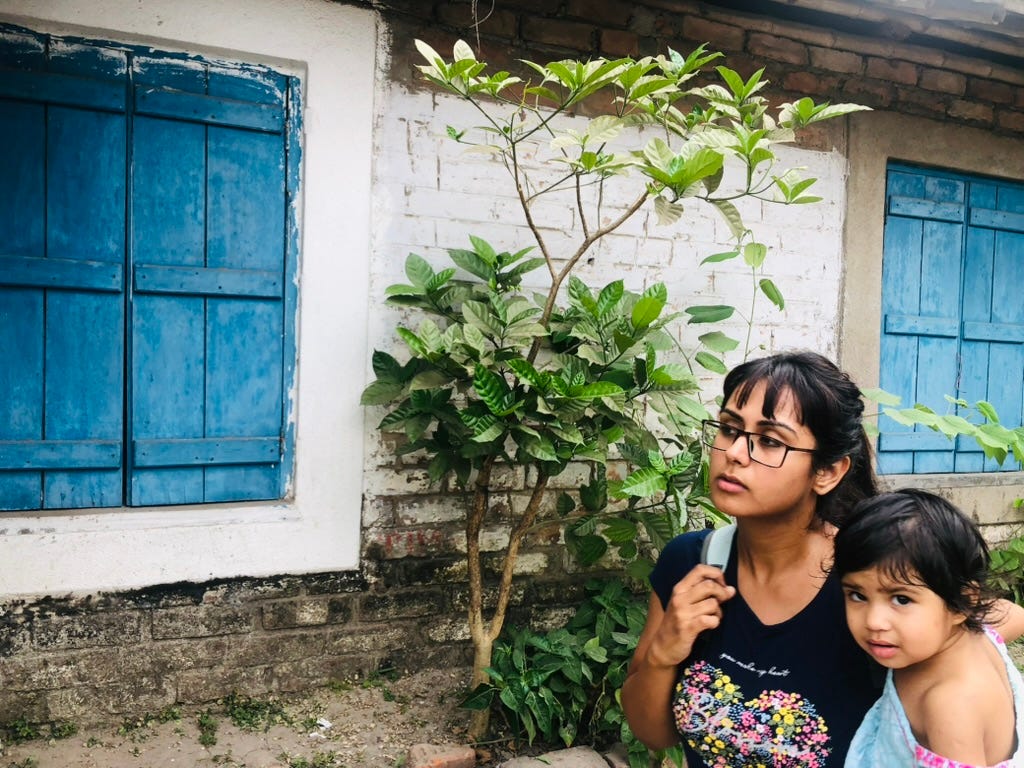
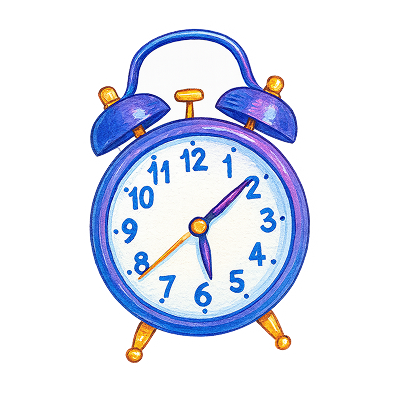


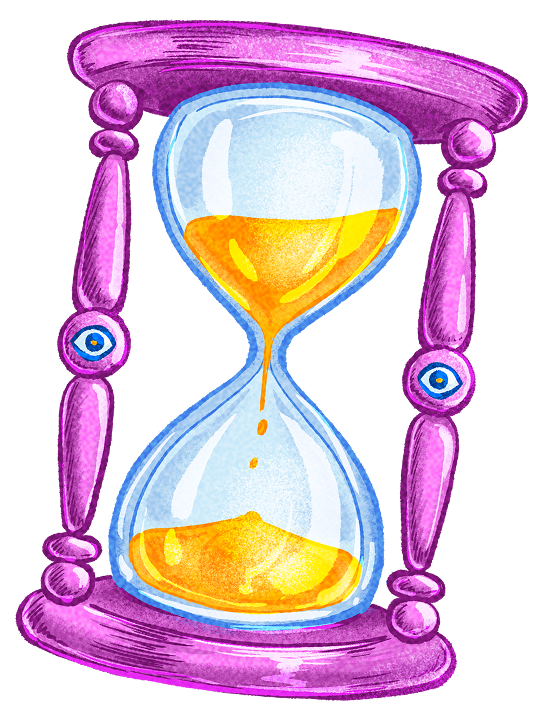

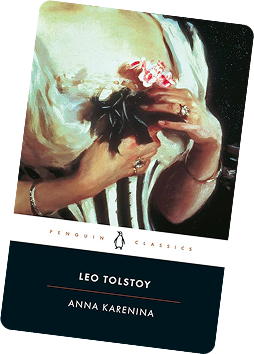

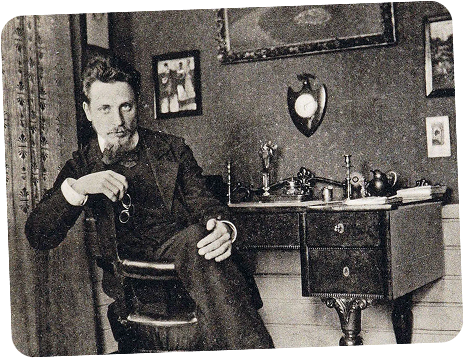
This was a very good read
Thanks for sharing this. And yes, capitalism is sneaky! When I hear terms like "mind share" and "attention economy" I recall 40+ years ago our critique of capitalism was that it would subsume everything - including our thoughts. Whelp, here it is. Damn. Illich wrote about this in the 60s.